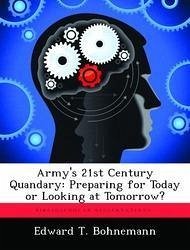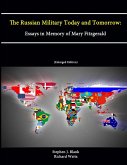The Army's Operational Concept emphasizes that Army forces must be prepared to conduct a combination of offensive, defensive, and stability or civil support operations to create opportunities and achieve desired results. The 2010 Quadrennial Defense Review Report further outlines the need for a balanced force, capable of operating across the spectrum of conflict. This monograph questions whether the United States Army should attempt to maintain its full spectrum capability while fighting two counterinsurgency operations. Since the September 11, 2001 attacks on the United States, the United States Army has shifted the preponderance of training toward stability and counterinsurgency operations to meet the requirements in both Afghanistan and Iraq, leaving many units untrained on their core mission essential tasks (CMETL). The most recent national security policy documents and the Army's recently published doctrine require the United States Army to maintain a well balanced force, capable of operating in a very dynamic operational environment. The 2006 Israeli-Hezbollah War provides a case study supporting the requirements of a full spectrum force and the dangers of limiting the focus of an Army to a particular portion of the conflict spectrum. This monograph shows that the United States Army must develop the capacity to not only succeed in today's conflicts, but also must maintain CMETL capabilities to support future contingencies.








